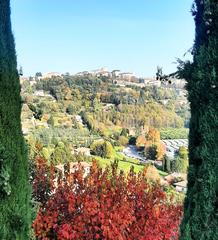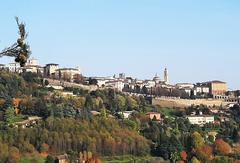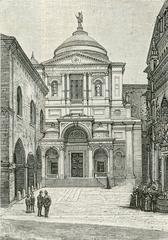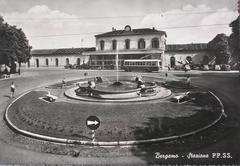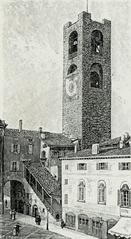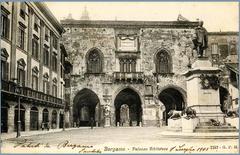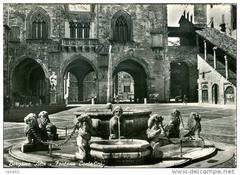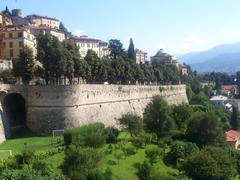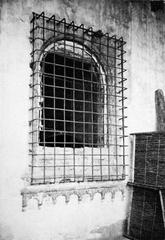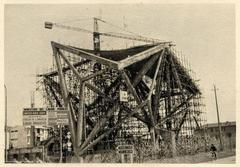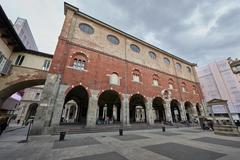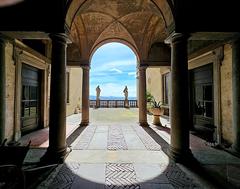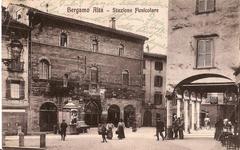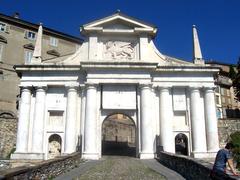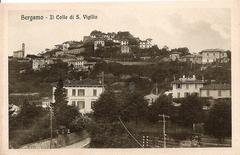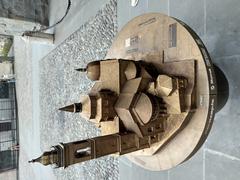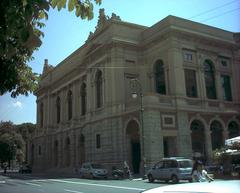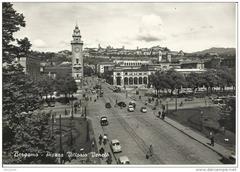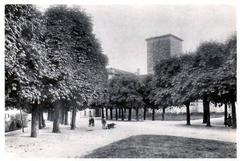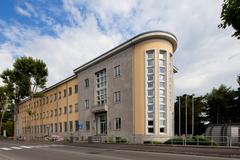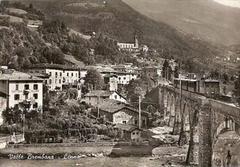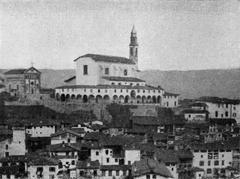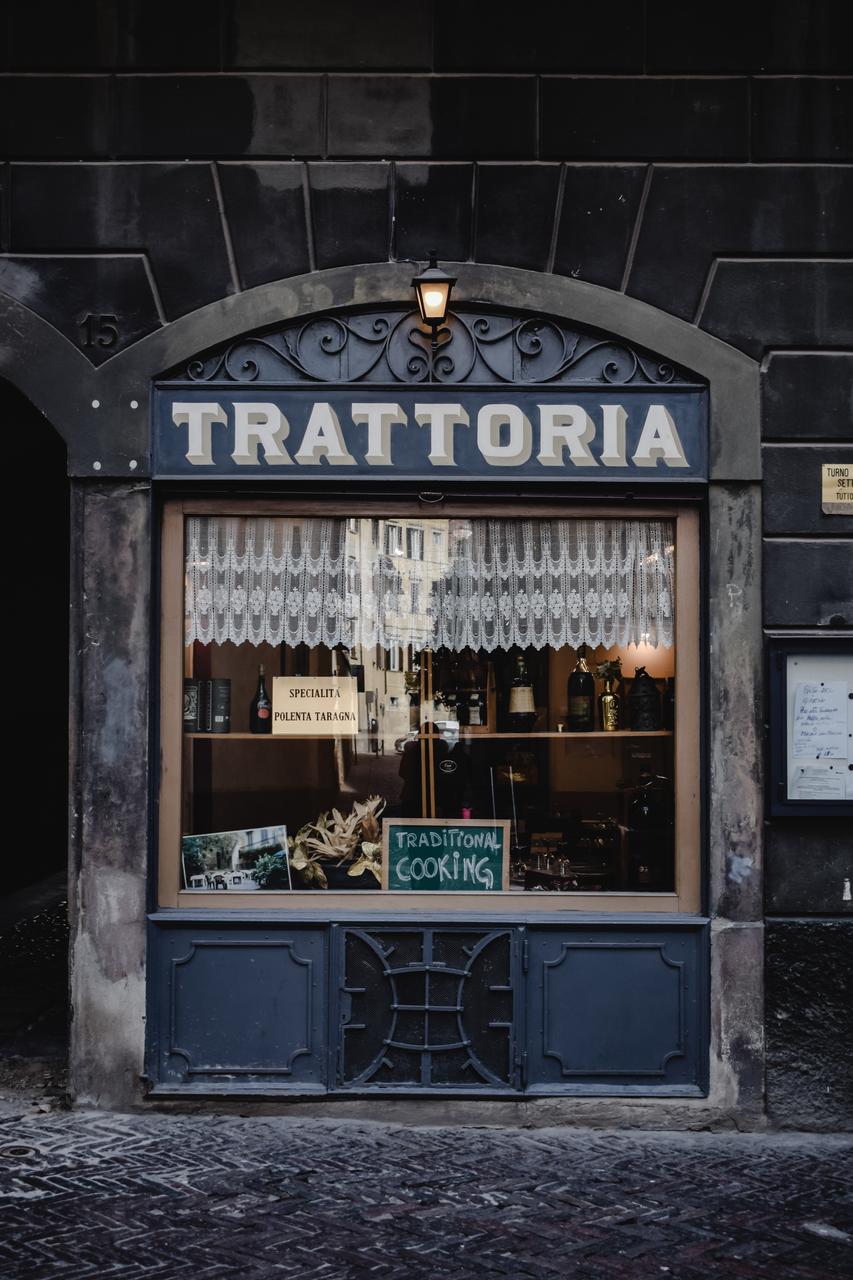
Comprehensive Guide to Visiting Bergamo, Province of Bergamo, Italy
Date: 14/08/2024
Captivating Introduction
Welcome to Bergamo, a hidden gem nestled in the heart of Lombardy that effortlessly merges ancient history with modern charm. Imagine walking through streets where the Ligurian tribe of the Orobii once roamed and later transformed into bustling Roman avenues. With roots stretching back to the Iron Age, Bergamo, originally known as Bergomum, is a city where every cobblestone whispers tales of yesteryears (Britannica). Whether it’s the medieval swagger of knights at the Abbey of Pontida or the cultural renaissance under Venetian rule, Bergamo boasts a rich tapestry of history that captivates every visitor. Picture yourself strolling through Città Alta, the old walled core, and marveling at the colossal Venetian fortifications that earned UNESCO World Heritage status in 2017 (Wikipedia). This isn’t just a city; it’s a sensory feast where every corner has a story to tell. Ready to uncover Bergamo’s secrets? Let this guide be your passport to the city’s hidden gems, captivating history, and vibrant culture.
Table of Contents
- Historical Overview
- Discover the Charms of Bergamo
- Ancient Beginnings and Roman Influence
- Medieval Prosperity and Venetian Rule
- Modern History and Unification of Italy
- Architectural Marvels
- Città Alta: The Upper Town
- Città Bassa: The Lower Town
- Notable Landmarks
- Cultural Heritage
- Museums and Galleries
- Festivals and Events
- Natural Beauty and Outdoor Activities
- Proximity to the Alps
- Scenic Views and Parks
- Culinary Delights
- Local Specialties
- Dining Experiences
- Practical Visitor Tips
- Getting There
- Accommodation
- Best Time to Visit
- Visitor Tips
Historical Overview of Bergamo
Antiquity and Roman Era
Did you know that Bergamo, originally called Bergomum, has roots stretching back to the Iron Age? The Ligurian tribe of the Orobii settled here, only to be swept away by the Celtic tribe of Cenomani around 550 BCE. Fast forward to 49 BCE, and Bergamo becomes a bustling Roman hub, a vital cog in the military road between Friuli and Raetia. Imagine the drama when Attila the Hun stormed through in the 5th century, leaving the city in ruins (Britannica).
Middle Ages
In the 6th century, Bergamo rises like a phoenix as a Lombard duchy. Wallaris, the first Lombard duke, leads the charge, and under Charlemagne, it becomes a county seat. Amid medieval strife, Bergamo is occupied by Huns, ravaged by Vandals, and juggled between Longobards and Byzantines. Picture knights and kings at the Abbey of Pontida in 1167, swearing the famous “Oath of Pontida” against Emperor Frederick Barbarossa (Italy This Way).
Renaissance and Venetian Rule
By the 12th century, Bergamo is an independent commune, only to fall under the Milanese Visconti family’s sway by 1329. But 1428 brings a twist! The Venetians take over, fortifying the city and transforming it into a cultural beacon. Imagine walking the same streets as Bernardo Tasso, father of the renowned poet Torquato Tasso (Britannica).
Napoleonic and Austrian Periods
As the 18th century rolls in, Bergamo dances to the tunes of European politics. After Venice falls, it joins Napoleon’s Cisalpine Republic in 1797. Fast forward to 1815, and Bergamo is under Austrian rule until 1859, when it proudly joins the unified Kingdom of Italy (Italy This Way).
Modern Era and Italian Unification
Bergamo is not just a passive observer in history; it’s a participant! Known as the “Città dei Mille,” it played a crucial role in the Italian unification movement. Feel the patriotic fervor as Giuseppe Garibaldi’s volunteers, many from Bergamo, march to battle. By the 20th century, the city blooms into an industrial powerhouse. Marvel at the urban transformation spearheaded by Marcello Piacentini’s master plan, blending Novecento Italiano with Modernist Rationalism (Wikipedia).
UNESCO World Heritage Site
Stroll through Città Alta, Bergamo’s old walled core, and let the massive Venetian fortifications transport you back in time. This enchanting area, with its labyrinthine streets and historic charm, earned UNESCO World Heritage status on July 9, 2017 (Wikipedia).
Cultural and Historical Significance
Bergamo’s allure lies in its rich tapestry of history and culture. From medieval buildings to modern museums, the city offers a sensory feast. Picture yourself in the upper city, gazing over the scenic hills and valleys, feeling the weight of centuries beneath your feet (Solo Sophie).
Key Historical Sites
- Rocca di Bergamo: Climb this fortress for panoramic views that will take your breath away.
- Astino Abbey: A scenic walk from Città Alta leads you to this serene historical site.
- Venetian Walls: These colossal walls encircle the upper town, a testament to Bergamo’s strategic importance.
Hidden Gems
- Little Venice: Explore the charming canals and bridges that mimic Venice’s allure without the crowds.
- Donizetti Theatre: Named after the famous composer Gaetano Donizetti, this theatre is a cultural gem.
- Café Cavour: Sip espresso like a local and indulge in the city’s café culture.
Discover the Charms of Bergamo
Ancient Beginnings and Roman Influence
Ah, Bergamo! Nestled in the heart of Lombardy, this city is like a time capsule waiting to be opened. Imagine walking through streets trodden by Celts over 2,000 years ago, later turned into bustling Roman avenues. The city’s Roman legacy isn’t just stuffy history—it’s in the cobblestones you walk on and the ancient ruins you stumble upon.
Medieval Prosperity and Venetian Rule
Fast forward to the Middle Ages, and Bergamo was living its best life. The city was part of the Lombard League and even stood up to Frederick I Barbarossa. Venetian rule from the 15th to 18th centuries added layers of architectural bling, including the famous Venetian walls. Today, these walls are perfect for a sunset walk or an impromptu history lesson.
Modern History and Unification of Italy
The 19th century saw Bergamo as a chess piece in European politics, first under the Austrian Empire and then as a proud part of the Kingdom of Italy. Heroes like Giuseppe Garibaldi walked these streets, inspiring a nation.
Architectural Marvels
Città Alta: The Upper Town
Perched like a crown jewel, Città Alta is a labyrinth of narrow cobblestone streets, historic churches, and palaces. The Piazza Vecchia is the beating heart of this area, where Renaissance elegance meets modern-day charm. And the views? Simply Instagram-worthy. Don’t miss the funicular ride up—it’s like a time-travel machine with epic views.
Città Bassa: The Lower Town
Down below, Città Bassa offers a splash of modernity with Neoclassical flair. Think of it as Città Alta’s trendy younger sibling, complete with chic boutiques and contemporary cafes. The funicular connects the two, making it easy to switch between historical grandeur and modern vibrancy.
Notable Landmarks
- Accademia Carrara: This art museum is a treasure trove of Renaissance and Baroque masterpieces. Art lovers, prepare to swoon.
- Basilica of Santa Maria Maggiore: This Romanesque beauty is a feast for the eyes, with intricate interiors that will make your jaw drop.
- Colleoni Chapel: Built in honor of Bartolomeo Colleoni, this chapel is a 15th-century masterpiece you can’t miss.
Cultural Heritage
Museums and Galleries
Bergamo isn’t just about the past; it’s a living, breathing cultural hub. The Galleria d’Arte Moderna e Contemporanea (GAMeC) is your go-to for contemporary art, while the Il Museo delle Storie di Bergamo offers a deep dive into the city’s rich tapestry.
Festivals and Events
Summer turns Bergamo into a carnival of colors and sounds. The Festa di Sant’Alessandro in August is a whirlwind of parades, fireworks, and music. And if jazz is your jam, the Bergamo Jazz Festival in June will have you tapping your feet all night long.
Natural Beauty and Outdoor Activities
Proximity to the Alps
Just a stone’s throw from the majestic Alpi Orobie, Bergamo is a paradise for hikers and nature lovers. On a clear day, the mountains loom large over the city, beckoning you to explore.
Scenic Views and Parks
Bergamo’s parks are perfect for a lazy afternoon or a romantic picnic. The panoramic gardens of Villa Rufolo offer a serene escape with views that are simply to die for.
Culinary Delights
Local Specialties
Bergamo’s cuisine is a love letter to Lombardy. Try casoncelli alla bergamasca, a stuffed pasta that’s a flavor explosion, or polenta e osei, a dish that’s as comforting as a warm hug.
Dining Experiences
From cozy trattorias to upscale restaurants, Bergamo’s food scene is vibrant and diverse. And don’t leave without trying the local stracciatella gelato—it’s like a little scoop of heaven.
Practical Visitor Tips
Getting There
Bergamo’s Caravaggio International Airport is your gateway to adventure. The city’s public transport is a breeze, making it easy to explore every nook and cranny.
Accommodation
From luxurious hotels to budget-friendly hostels, Bergamo has something for every traveler. Pro tip: book early to snag the best deals.
Best Time to Visit
Summer is festival season, but spring and autumn offer mild weather and fewer crowds. Whenever you visit, Bergamo will welcome you with open arms.
Visitor Tips for Bergamo
Getting Around
Bergamo is well-connected by public transportation. The city’s Il Caravaggio International Airport is the third-busiest in Italy, making it a convenient entry point (Understanding Italy). From the airport, you can take a bus or taxi to the city center. The city is divided into two main areas: the upper town (Città Alta) and the lower town (Città Bassa). The two are connected by a funicular railway, which offers stunning views of the city. Buses run frequently between the train station and Città Alta, making it easy to navigate.
Guided Tours and Itineraries
For a comprehensive experience, consider taking a guided tour. A highly recommended option is a walking tour with a local guide, which covers the main attractions in about 2.5 hours (Nomads Travel Guide). If you prefer exploring at your own pace, there are self-guided walking tours available with maps. A typical itinerary might include a morning visit to the Venetian Walls and Piazza Vecchia, followed by lunch at a local trattoria, and an afternoon exploring the Basilica di Santa Maria Maggiore and Colleoni Chapel.
Key Attractions
Città Alta (Upper City)
- Venetian Walls: These 16th-century walls were built by the Republic of Venice and are now a UNESCO World Heritage site. Walking along the walls offers panoramic views of the city and surrounding areas (Culture Trip).
- Piazza Vecchia: The heart of the upper city, this square is surrounded by historical buildings and offers a variety of cafes and restaurants. Key landmarks include the Palazzo della Ragione and the central fountain with lion sculptures (Culture Trip).
- Basilica di Santa Maria Maggiore: This basilica dates back to the 12th century and features a mix of Romanesque and Baroque architecture. It is located near the Colleoni Chapel, another must-see site (Time Travel Turtle).
Città Bassa (Lower City)
- Accademia Carrara: This art gallery houses one of the finest Renaissance collections in the world, featuring works by Bellini, Botticelli, Raphael, and Titian (Understanding Italy).
- Via XX Settembre: A popular shopping street in the lower city, offering a mix of high-end boutiques and local shops (Culture Trip).
Dining and Cuisine
Bergamo’s cuisine is hearty and rustic, reflecting its mountainous surroundings. Must-try dishes include:
- Polenta Targana: A cornmeal-based dish served with an assortment of cheeses.
- Casoncelli alla Bergamasca: Pasta filled with meat and served in a rich butter sauce.
- Risotto alla Bergamasca: A creamy risotto often made with mushrooms.
- Polenta e Osei: A traditional dessert made of polenta cake with chocolate shaped like birds (Understanding Italy).
For a unique culinary experience, consider taking a cooking class where you can learn to make these traditional dishes yourself (Culture Trip).
Practical Tips
- Language: While Italian is the primary language, many people in the tourist areas speak English. Learning a few basic Italian phrases can enhance your experience.
- Currency: The currency used is the Euro (€). Credit cards are widely accepted, but it’s a good idea to carry some cash for small purchases.
- Safety: Bergamo is generally safe, but like any tourist destination, it’s wise to be aware of your surroundings and keep an eye on your belongings.
- Dress Code: When visiting religious sites like the Basilica di Santa Maria Maggiore, dress modestly. Shoulders and knees should be covered.
Day Trips
Bergamo’s location makes it an excellent base for exploring other parts of Northern Italy. Consider day trips to:
- Milan: Just an hour away by train, Milan offers world-class shopping, dining, and cultural attractions.
- Lake Como: Known for its stunning scenery and charming towns, Lake Como is about an hour and a half away by train.
- Venice and Verona: Both cities are accessible by train and offer rich histories and beautiful architecture (Culture Trip).
Cultural Context and Etiquette
- Local Lingo Lessons: Learn to say ‘Che figata!’ (How cool!) when you’re impressed.
- Myth Busting and Surprises: Surprise: Bergamo has more Michelin-starred restaurants per capita than Milan. It’s a foodie paradise!
- Storytelling Elements: Legend has it that the ghost of Bartolomeo Colleoni still roams the Colleoni Chapel on moonlit nights.
FAQ
Q: What’s the best way to get around Bergamo?
A: The funicular is a must for stunning views and quick access between Città Alta and Città Bassa.
Call to Action
Ready to uncover Bergamo’s secrets? Download Audiala, your ultimate audio guide app, and let the city’s stories come alive in your ears.
References
- Bergamo, 2023, Britannica https://www.britannica.com/place/Bergamo-Italy
- Bergamo history, 2023, Italy This Way https://www.italythisway.com/places/articles/bergamo-history.php?scf=1
- Bergamo, 2023, Wikipedia https://en.wikipedia.org/wiki/Bergamo
- Best things to do in Bergamo, 2023, Solo Sophie https://www.solosophie.com/best-things-to-do-in-bergamo/
- Visiting Bergamo, 2023, Time Travel Turtle https://www.timetravelturtle.com/italy/things-to-do-in-bergamo/
- Bergamo, 2023, Understanding Italy https://www.understandingitaly.com/bergamo.html
- Bergamo, 2023, Nomads Travel Guide https://www.nomads-travel-guide.com/city/bergamo/
- Bergamo, 2023, Culture Trip [https://theculturetrip.com/europe/italy/articles/the-top-10-things-to-do-and-see-in-berg
